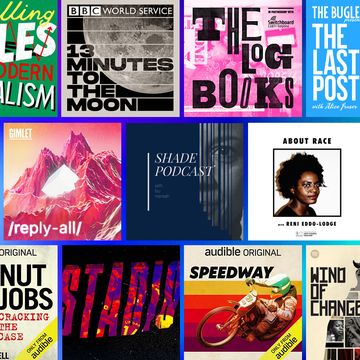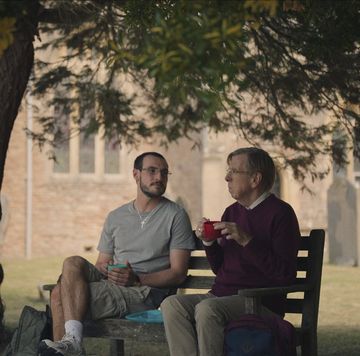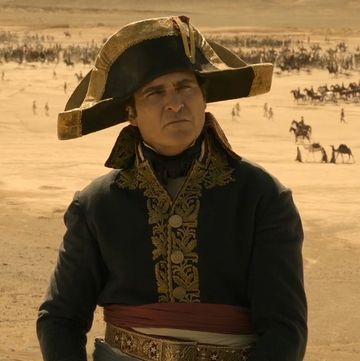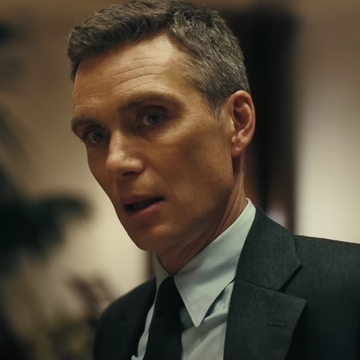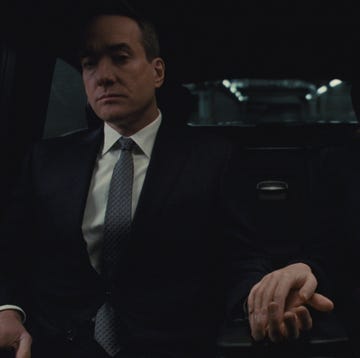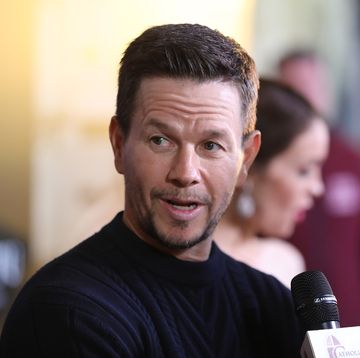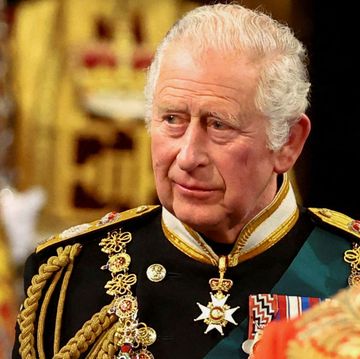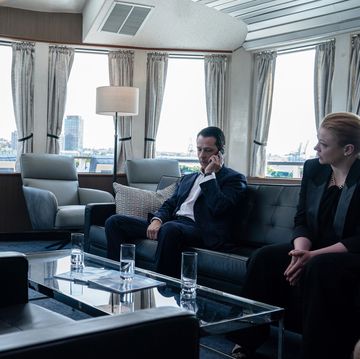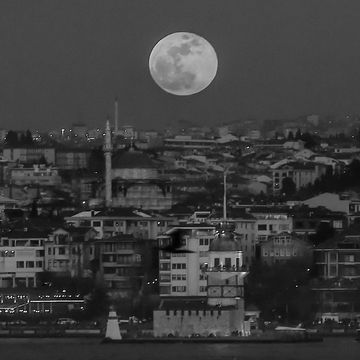Alessandro Nivola is American. This is a fact I thought I had come to terms with. Yet it still felt like a complete bolt out of the blue when an English accent didn’t emerge as we sat down to chat.
Ever since Michael Winterbottom took a chance on casting him as a Hastings fisherman in 1998’s I Want You, Nivola has cemented himself as stage and screen's most convincing Brit mimic. It’s why he had no qualms about taking on the role of a North London orthodox Jew in Disobedience, Sebastiân Lelio’s tense tale of forbidden lesbian love.
We talked to the 46-year-old actor about the challenges that came along with the job, as well as his upcoming part in the much-anticipated Sopranos prequel, The Many Saints Of Newark.
How did you prepare for your role in Disobedience? Was it daunting?
Normally I don't have that much time to prepare [for roles]. This was an unusual situation where I had about four months - first of all to grow the beard, but also to try and gain access to a really closed community.
I was lucky enough to get introduced to the Lubavitch Hasidic community in Crown Heights, Brooklyn. They were worried I was going to f**k it up and misrepresent the Orthodoxy, so this guy decided he was going to mentor me. It started off with Hebrew lessons, learning specific blessings, then he started inviting me for Shabat dinners with his family. We really got to be friends. Of course, a lot of people in Crown Heights are related to and know people in North London - in Hendon and Golders Green - so I came over here and already had an introduction.
Did immersing yourself in the community impact your view of religion?
The first thing that I noticed from talking to a lot of people was how differently each individual person related to religious law, their opinions and the way they wanted to practise. Everyone I met told me that the last guy was wrong. In a way, there was something quite liberating about that.
The guy I was playing was, in my mind, pretty open-minded considering he was about to take over a community with a strict code of conduct. I tried to understand if that could be believable – if someone so progressive could thrive with that sort of authority in that community. The answer is yes, because the leadership was about force of personality.
There’s a point where you think he could lose control and turn violent
You can be someone with a very open-minded, philosophical outlook on the world, but when your personal life is being threatened by circumstance you can very quickly become reactionary, angry and defensive.
I think that's his arc. Someone who begins the film as a man who's full of love and acceptance but, because of a personal threat, becomes intractable, angry and almost menacing. Those scenes in the middle, where he's really grappling with that, are emotionally charged and every fibre of his body wants to scream and hit people.
It’s been a big year. Disobedience has been earning rave reviews and you’ve just been cast in The Sopranos prequel, The Many Saints Of Newark…
A big part of all this is tied in with my dad. He found out he had three months to live just as I started shooting Disobedience, and I had to decide whether I was going to bail on the movie and go home to be with him. He just insisted that I not leave the movie. He said it would depress him so much if I sat by his bedside waiting for him to die, and he just couldn't handle it.
He really gifted me that opportunity to do that movie. Making that film was very charged at that time, because I just felt like I couldn't waste a single moment of that experience for fear of having, I don't know, disrespected my dad somehow.
He was Italian, right?
My dad was an immigrant from a Sardinian family. He was obsessed with the nuances of the Italian-American experience, but he had that classic thing, at a point in his life, of desperately wanting to be an American. His name was Piettro Salvatore Nivola, and he changed his name to Pete. He married my American mum, and it was around the time I was born that he realised: 'Wait a minute, I've got this heritage behind me that I don't want to abandon', and that's how I got this fucked up name.
[The name] has kind of been a handicap to me in some ways. So The Many Saints Of Newark feels like the convergence of a lot of elements of my life and childhood and my father's legacy. It's the first time I really, really regretted not being able to call him up and tell him about a job. Nothing would have made him more excited.
Tell me about your character, Richard ‘Dickie’ Moltisanti. He’s a legendary figure in the show.
I'm playing a guy in his thirties/forties, and that generation, in Newark in the sixties, would have spoken hardly any Italian at all. There was a lot of Sicilian and Neapolitan dialect words – Goomah! Pro-shoot! Mozarell! – so there's a lingo, but an element of the story that's important is that I can't speak Italian, and that I can't communicate with an Italian immigrant who I get to know. I don't start shooting until April, so until then I'm just going to hang out with Made Men in social clubs.
American Italians are so proud of being from Italy. Everything about the construct of their lives, and even the construct of organised crime, was based, inherited and designed to pay tribute to the Motherland. And yet when they [the Soprano crew] go back there, people don't think of them as Italian at all. They think: these people are fucking assholes! That was true of me as a young guy going back there. When I was in America I thought I was Italian, but when I went to Italy I was the most American guy they'd ever seen!
What’s in store for the young Tony Soprano?
Tony's going to be mid-teens, right at that tender age where he needs guidance, and all he gets is me.
How much time have you spent with David Chase?
I've met David Chase twice. My next door neighbour in Brooklyn is Tim Van Patten, who directed, like, half of The Sopranos episodes. He's become one of my closest friends, so when I got offered the role he couldn't believe it. He invited me round to thanksgiving lunch, he opened the door and David Chase was there. That was a shock.
Disobedience is out now.

Nick Pope is the Site Director of Esquire, overseeing digital strategy for the brand.



